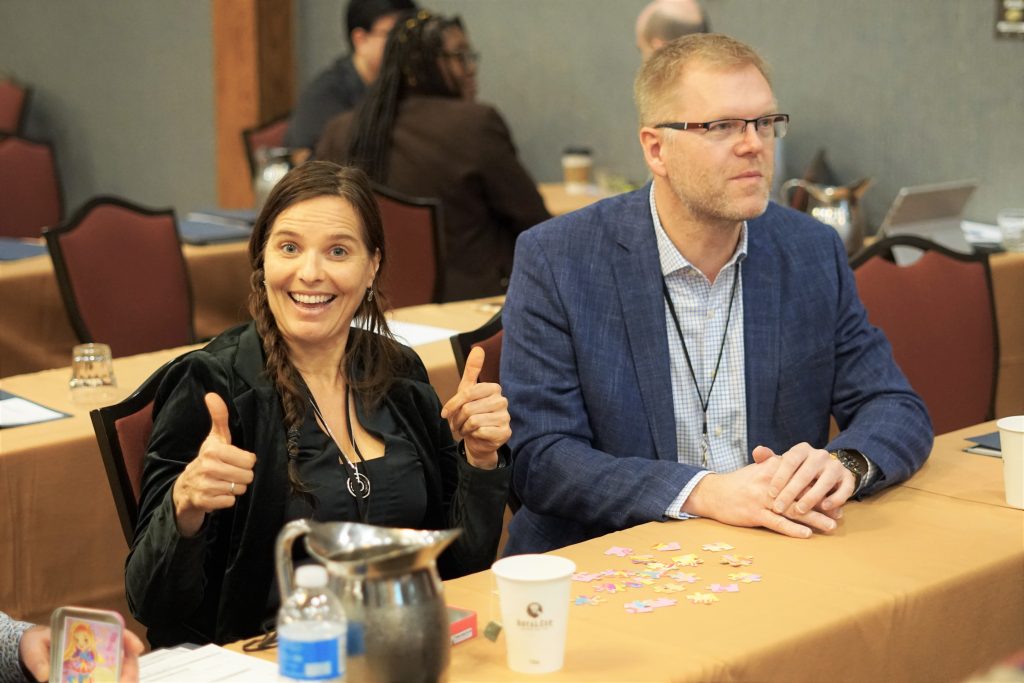
27 Oct Procurement Tip: How to Spot an Expert
Today’s procurement tip is on how to spot an expert when you are not an expert.
Buyers are required to procure a wide range of services including IT, construction, marketing, travel, etc. As technology and techniques are continually improving, it has become increasingly more difficult—if not impossible—for the buyer to maintain sufficient internal expertise for all these services. This is evident as some buyers have begun hiring subject matter expert consultants to assist in the procurement of targeted services. The issue is that whether you maintain the expertise within your organization or hire third party experts, costs will inevitably rise. There is also a question as to the quality of that expertise, how can buyers maintain the same level of expertise, or higher, as vendors who perform the service day in and day out?
People rarely stop to consider why internal expertise is needed in the first place. Why does the buyer need any expertise in the service they are procuring? Can a buyer without any expertise identify and utilize an expert vendor? After years of research, it has been proven that the buyer doesn’t!
In this article, we will cover the simple way to ensure that you have an expert for your project including proven characteristics and essential supporting evidence.
Characteristics of an Expert
 Predict the Future
Predict the Future
The quickest way to identify an expert is their ability to see into the future. I will use a simple example of a water bottle. If I were to hold a water bottle in the air and drop it 100 times, what percent of the time would it fall downwards? Even before releasing the bottle once, you were able to predict that 100% of the time it would fall downwards. How were you able to do this?
As silly as this example seems, it is a perfect representation of an expert’s mind. The release of a water bottle is a project where you are an expert. The situation is very simple—you know what a water bottle is and you know about gravity. It is simple to you because you understand it and are therefore an expert in that project.
When you understand a project, it means you are able to predict the future of that project. The more expertise you have in any area, the greater accuracy of your predictions, the less expertise you have, the less accurate your predictions will be. As an individual is asked to look farther into the future, a greater amount of expertise is required. If you receive responses such as “it is impossible to know the future”, “there are too many variables”, “it is too complex”, or “we will only know after we start working”, there is a high possibility that the person you hired is not an expert in your project.
Make it Simple
Because an expert understands a project, it is simple to them. For other people without the knowledge (nonexperts), the situation can seem quite complex. A mark of a true expert is their ability to simplify a situation so that those who are nonexperts can understand and see into the future, without having to know everything the expert knows. When hiring an expert, it is important to always ask the expert to show you the future in terms of a simple plan.
An expert should never ask you to “trust” them because the situation is too complex for you to understand. It is not necessary for you to understand all that the expert understands, but an expert will always make it simple enough so you can understand the problem, the methods used to solve the problem, and the end-result. When projects are simple, and everyone can understand regardless of their expertise, the expert has created transparency. If an expert is unable to relay things to you in a simple, understandable plan, it is an indicator that the person may not be an expert and may not understand the situation themselves.
The most common way for an expert to simplify a project is by speaking in terms of performance metrics. Performance metrics allow nonexperts to understand the end result of a project in simple, measurable terms. For more information on how to use metrics, see this article.
Tell the Difference
The last characteristic you should look for in an expert is the ability to tell the difference. Experts should be able to explain differences they see in the project including:
- What makes the project different than previous projects in terms of risk, people involved and the requirement.
- Why they were selected and how they are different than other vendors and people within their company.
- The difference between the project’s current state, key milestones, and final outcome.
If a vendor cannot tell the difference or believes there is nothing unique or different about the project, you may not have an expert.
Evidence of Expertise
 Low Cost
Low Cost
Experts cost less and result in greater profits. It might seem too good to be true, but it is an accurate statement. One of the common lines we hear to justify a high price is that we are “paying more for expertise”. However, you have to ask yourself, if this logically makes sense.
As a client, we have a project that we hire an expert to perform. Ultimately, we are hiring an expert to lower our costs, not to increase our costs. Experts see into the future and create a more accurate and efficient plan than we can create. The expert’s efficiency lowers costs by doing things right the first time (no mistakes), doing things at the most efficient time, and using the lowest costing material which can meet the client’s requirement (zero waste). In other words, experts increase their profit by improving their efficiency and not by increasing their costs.
Can show high performance on similar projects to yours
One of the safest ways to identify an expert is recursively through their performance. The key to using an expert’s past performance to prove their expertise boils down to similarity. An expert who has built 100 McDonalds successfully would not necessarily be an expert in building a skyscraper. Experts should demonstrate how their previous performance is comparable to your specific project. The greater the similarity between the expert’s past performance and the current specific project, the stronger the indication of expertise. In cases where an expert cannot show comparability of previous project performance, there is a greater risk that they are not an expert.
An Approach which Identifies and Utilizes Expertise
The Best Value Approach is a procurement and project management process that utilizes all of these characteristics and evidence to identify an expert. The approach requires no expertise in what you are procuring to select and manage an expert vendor. In using such an approach not only does internal costs to maintain expertise on the buyer side go down, but the performance from the vendor side should improve as well!
To learn more about the Best Value Approach and how this can be done see the following relevant resources:
1. Free membership for latest tips and news: https://pbsrg.com/membership/
2. For latest books, events, and licensed partners: https://pbsrg.com/resources/
3. Latest BVA journal publications: www.cibw117.org/
4. Annual Best Value Conference in January: https://bestvalueconference.ksm-inc.com/
5. Latest presentations and videos: https://www.youtube.com/channel/UCxBi26nXLDTqG4ZRV6p0iiQ


